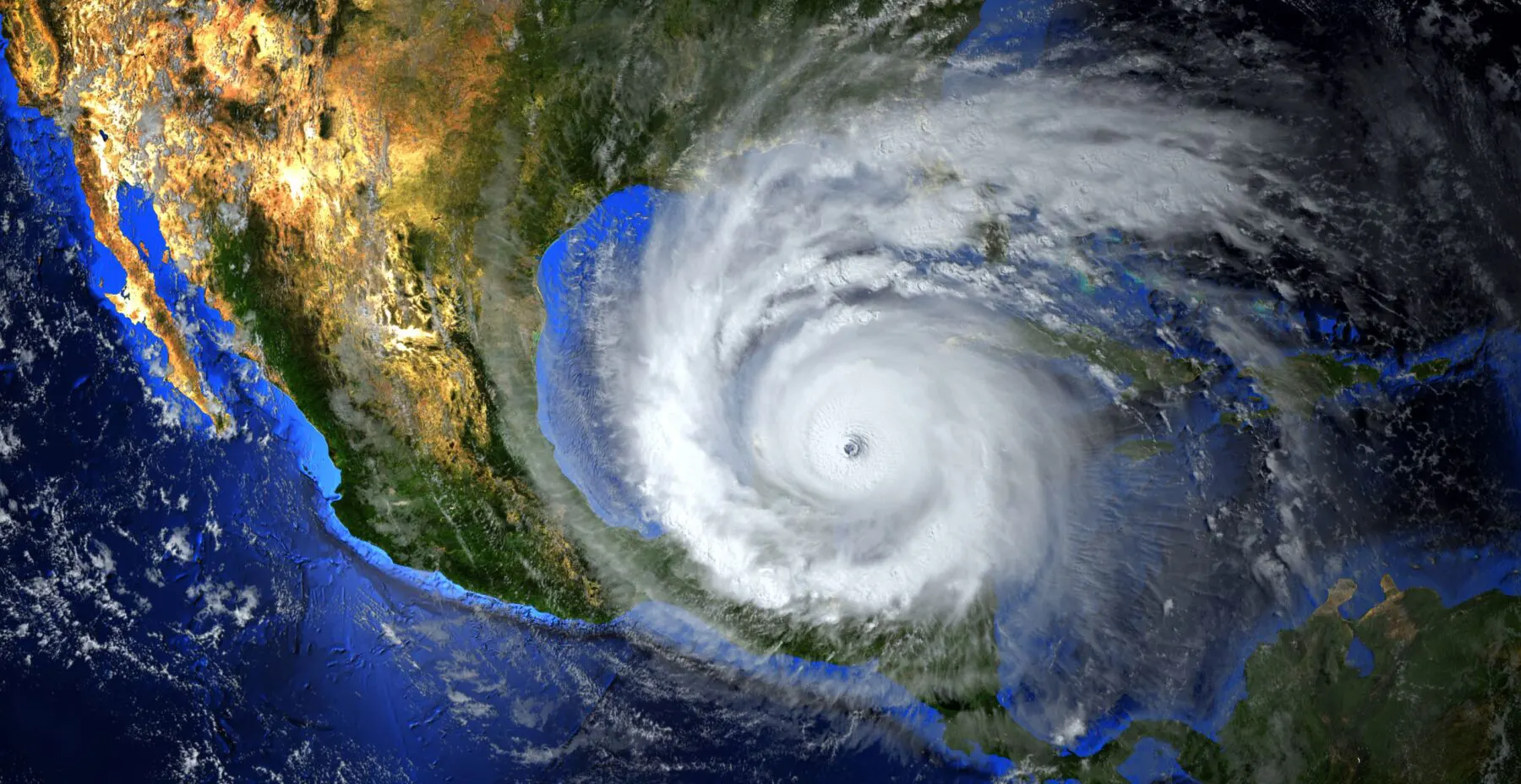Information and Preparedness are vital elements during hurricane season. The country is still enduring the aftermath of hurricane Ida and now getting ready for Nicholas. We are keeping a close eye and encourage those in its potential path to do the same.
Tropical storm Nicholas is forecast to approach the middle Texas Coast as a strong tropical storm today and could be near hurricane intensity at landfall. There is danger of life-threatening storm surge inundation along the Texas and southwest Louisiana Coasts. Significant rainfall is possible, potentially resulting in areas of considerable flash and urban flooding.
Nearly 90% of all hurricane-related deaths involve water: storm surge, inland flooding, or rip currents. Hurricanes can also generate tornadoes, even in the outer bands far from the center. Hazardous conditions can occur well ahead and well after a hurricane’s arrival.
Hurricane Preparedness: BEFORE THE STORM –
Make a plan. Be Prepared. Be Ready.
When a tropical storm or hurricane threatens your community be prepared to evacuate if you live in a storm surge risk area. Allow enough time to pack and inform friends and family if you need to leave home.
IF YOU ARE UNDER A HURRICANE WARNING, FIND SAFE SHELTER RIGHT AWAY.
Follow the instructions issued by local officials. Leave immediately if ordered!
Here are some valuable hurricane preparedness guidelines to support you before, during and after severe weather:
Top five hurricane preparedness tips. First of all, protect life:
- Build an emergency kit that includes the things that you may need to survive on your own for several days. Being prepared means having your own food, water, and other supplies to last for several days. Gather necessary supplies including food, extra clothing, generator, first aid kit
- Create a communication plan with your family. Make sure that everybody understands it, and that it covers things like a designated evacuation site, emergency contacts, family reunification site, medical provider information, etc.
- Individuals with disabilities need to consider their particular circumstances and needs to effectively prepare for emergencies and disasters. Register for State of Texas Emergency Assistance Registry (STEAR) if you or anyone you know will need some assistance in an emergency event.
- Help your neighbor. Many people, especially senior citizens, rely on the assistance of neighbors before and after hurricanes. Help your neighbors collect the supplies they need before the storm. Assist them with evacuation is ordered to do so and check on them after it is safe for you to head outside.
- Your pets are an important member of your family, so take them into account in your family’s emergency plan, livestock animals and companion animals.
Hurricane preparedness: Top tips to protect your home
- Before severe weather strikes, prepare your home and business with insulation and weather stripping. Test smoke alarms and carbon monoxide detectors. Move valuables to higher levels; declutter drains and gutters.
- Know the flood risks in your area. Review your insurance coverage and take pictures of the interior and exterior of your home or office.
- Keep in mind that homeowners’ insurance doesn’t cover flooding. Purchase or renew a flood insurance Keep in mind that it takes up to 30 days for the policy to go into effect. So, the right time to buy a flood insurance policy is well before a disaster.
- Get tech ready. Keep your cell phone charged and purchase backup charging devices to power electronics.
- Keep important documents in a waterproof container, and if possible, create password-protected digital copies.
Five more helpful tips to help you prepare for the hurricane
- Park Vehicles in safe, protected areas. Prepare your car by filling the gas tank, checking your tires, and assembling an emergency kit in case that you become stranded.
- Secure doors, windows and other openings
- Sheltering might be appropriate when conditions required that you seek protection when emergencies arise. Sheltering can mean, stay-at-home, going to a mass care shelter, or sheltering in place. Shelter finder by the American Red Cross
- Stay safe during a power outage. Prevent carbon monoxide poisoning by using generators and grills only outdoors. Avoid downed power lines and stay inside your vehicle if a power lines falls on your car when driving. The Texas public utility commission’s site has information about outages.
- Sign up for your community or county warning system. Pay attention to the news, media and instructions from public officials.
Hurricane Preparedness: Weather Updates
Weather conditions can result in severe and potentially life-threatening conditions. For example, hurricanes can result in flooding, power outages, slippery roads or ice storms. To be prepared, it is important to remain alert and keep an eye on weather conditions. By staying informed you can protect your home, business and loved ones, also you can be prepared to react if necessary.
Helpful resources to track your local weather and stay ahead of the storm:
- National Weather Center: Find & Follow your local weather information
- National Hurricane Center
- Texas Gulf Coast 10 Day Forecast
Hurricane Preparedness: Traffic and evacuation routes
It is important to prepare for travel or evacuation in extreme weather. Stay Informed about open routes and listen to what emergency officials are indicating about road conditions. Be mindful that in the event of flash flooding, it is better to turn around to avoid the risk of drowning.
Here are some useful resources to help you stay updated and look at the current traffic conditions in your area:
- Houston traffic
- Dallas traffic
- Fort Worth traffic
- Galveston traffic
- Austin traffic
- Know your evacuation routes
Hurricane Preparedness: Tips for Staying Safe During the storm
If NOT ordered to evacuate:
- Determine how best to protect yourself from high winds and flooding.
- Take refuge in a small interior room, closet, or hallway on the lowest level during the storm. Put as many walls between you and the outside as you can.
- Stay away from windows, skylights, and glass doors.
- If the eye of the storm passes over your area, there will be a short period of calm, but at the other side of the eye, the wind speed rapidly increases to hurricane force winds coming from the opposite direction.
- If trapped in a building by flooding, go to the highest level of the building. Do not climb into a closed attic. You may become trapped by rising flood water.
- Do not walk, swim, or drive through flood waters. Turn Around. Don’t Drown! Just six inches of fast-moving water can knock you down, and one foot of moving water can sweep your vehicle away.
- If you must go to a community or group shelter remember to follow the latest recommendations from the Centers for Disease Control and Prevention (CDC) for protecting yourself and family from COVID-19. Be sure to review your previous evacuation plan and consider alternative options to maintain physical distancing to prevent the spread of COVID-19 and update your plan accordingly.
- If you must evacuate, if possible, bring with your items that can help protect you and others in the shelter from COVID-19, such as hand sanitizer, cleaning materials, and two clean, well-fitted masks that have two or more layers for each person.
Hurricane Preparedness: Tips for Returning Home Safely After the storm
- Continue listening to a NOAA Weather Radio or the local news for the latest updates.
- If you evacuated, return home only when officials say it is safe.
- Once home, drive only if necessary and avoid flooded roads and washed-out bridges. If you must go out, watch for fallen objects in the road, downed electrical wires, and weakened walls, bridges, roads, and sidewalks that might collapse.
- Walk carefully around the outside of your home to check for loose power lines, gas leaks, and structural damage.
- Stay out of any building if you smell gas, if floodwaters remain around the building, Â if the building or home was damaged by fire, or if the authorities have not declared it safe.
- Carbon monoxide poisoning is one of the leading causes of death after storms in areas dealing with power outages. Never use a portable generator inside your home or garage. Review generator safety.
- Use battery-powered flashlights. Do NOT use candles. Turn on your flashlight before entering a vacated building. The battery could produce a spark that could ignite leaking gas, if present.
Clean up and Community Engagement after the storm
- Be careful during clean-up. Wear protective clothing, use appropriate face coverings or masks if cleaning mold or other debris, and maintain a physical distance of at least six feet while working with someone else. People with asthma and other lung conditions and/or immune suppression should not enter buildings with indoor water leaks or mold growth that can be seen or smelled, even if they do not have an allergy to mold. Children should not take part in disaster cleanup work.
- Continue taking steps to protect yourself from COVID-19 and other infectious diseases, such as washing your hands often and cleaning commonly touched surfaces.
- Wear protective clothing and work with someone else.
- Do not touch electrical equipment if it is wet or if you are standing in water. If it is safe to do so, turn off electricity at the main breaker or fuse box to prevent electric shock.
- Save phone calls for emergencies. Phone systems are often down or busy after a disaster. Use text messages or social media to communicate with family and friends.
- Document any property damage with photographs. Contact your insurance company for assistance.
- Engage virtually with your community through video and phone calls. Know that it’s normal to feel anxious or stressed. Take care of your body and talk to someone if you are feeling upset. Many people may already feel fear and anxiety about the coronavirus 2019 (COVID-19). The threat of a hurricane can add additional stress. Follow CDC guidance for managing stress during a traumatic event and managing stress during COVID-19.
What to do if you lose power during the storm?
If you lose power, don’t call your electricity provider but your utility company instead. Utility companies are the ones that own the electric wires and responsible for fixing power outages during emergencies. If you are unsure about which one is your utility company, check your electricity bill.
Here is the contact information for Texas Utility companies:
CenterPoint: 1-800-332-7143
Oncor: 1-888-313-4747
AEP Texas: 1-866-223-8508
TNMP: 1-888-866-7456
Also, we are encouraging our EnerWisely community and our team to conserve energy so fewer people lose power. EnerWisely proudly provides Texas households with a 100% online free energy savings quiz to determine how and where to save energy and money.




